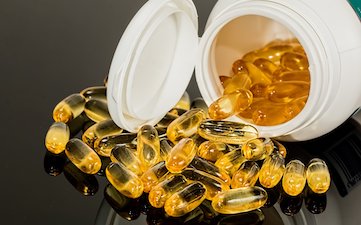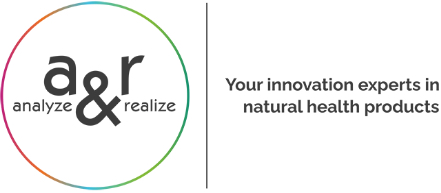
As the coronavirus pandemic progresses, there is increasing consumer interest in the use of natural health products as a supporting or preventative measure to improve their health and wellbeing.
The sales of food supplements, particularly those that claim to be beneficial to the immune system, increased during the pandemic. Even if the clinical evidence on ingredients such as vitamin D, vitamin C, zinc, but also probiotics and omega-3 fatty acids is still preliminary, more and more national guidelines are issuing recommendations for vitamin D for immune support.
As mentioned in our previous newsletter, the Irish Joint Health Committee is calling for vitamin D supplementation for the general public, particularly in light of the Covid-19 pandemic. In parallel, the German BfR (German Federal Institute for Risk Assessment) is more cautious and only recommends vitamin D supplementation for groups with an increased risk of vitamin D deficiency; this being a very far-reaching recommendation for a German authority. Similar recommendations are being made in France and the UK; partly with a focus on the prevention of severe Covid-19 courses (Académie Nationale de Médecine, France) or with the note that vitamin D supplementation is generally recommended (National Institute for Health and Care Excellence (NICE), UK).
The current status underlying the scientific evidence for vitamin D supplementation in Covid-19 prevention and treatment was summarized in a recently published review paper by Lordan et al. (2021). Accordingly, observational studies, in particular at the beginning of the pandemic, showed a possible correlation between vitamin D deficiency and a severe course of Covid-19. The review also points to first smaller intervention studies indicating a causal relationship for the intake of vitamin D against Covid-19.
A look at ClinicalTrial.gov shows over 90 clinical studies (as of May 2021) that are on the way to shed light on questions such as how vitamin D intake impacts mortality, symptom recovery, the severity of Covid-19 infections, or immune markers, and whether it affects the prevention of infections. Considering the high number of patients with post-Covid syndrome, also known as “long-Covid”, one of the most urgent questions for the future is probably related to the extent to which supplementation with vitamin D or other functional ingredients will have a positive effect on the course of the post-Covid syndrome. So, the need for well-conducted clinical intervention studies is mandatory. It is therefore not surprising that, for example, the National Institute for Health and Care Excellence (NICE) in the UK is calling for randomized controlled studies in all care facilities on the preventive and therapeutic effects of vitamin D supplementation on Covid-19 (including post-Covid syndrome). Also, the American Society for Parenteral and Enteral Nutrition (ASPEN) is urgently asking for more nutritional research, including micronutrients and other nutritional supplements, to improve nutritional care for patients before, during, and after Covid-19 (for further reading about ASPEN Covid-19 task force on nutrition research, click here).
Moreover, consumers are also driving demand for innovative products as a way to fortify their health. So, now more than ever, products whose health benefits are supported by solid clinical research will increase consumer confidence and brand trust. As a consequence, consumer healthcare brands should invest in proprietary studies to communicate the value proposition of their immune products, thereby differentiating from their brand’s competitors.
Digitalization within clinical research was already a topic before Covid 19, but the pandemic has massively accelerated its need. Modern CROs such as a&r have invested in the development of their digital skills to execute clinical studies with state-of-the-art e-tools. With these digital solutions, it is not only possible to comply with the current hygiene rules, but also to save costs and time. If you are interested in state-of-the-art clinical trials for a fast-growing new market, contact us.
